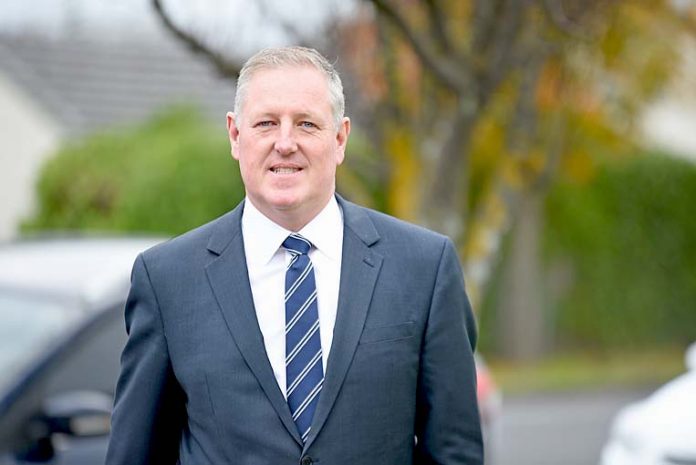SOUTH Australian public school students should be restricted from having mobile phones at school to reduce distraction and focus on learning, Member for Mount Gambier Troy Bell says.
Read more of what Mount Gambier High School and St Martins Lutheran College have to say.
The independent MP will call on Education Minister John Gardner to develop regulations to limit mobile phone use in schools, bringing South Australia in line with Victoria, New South Wales, Western Australia, which have all implemented statewide bans.
Mr Bell – who was a teacher before entering parliament – said mobile phones were highly-addictive, decreased interaction in the school yard and contributed to classroom disruptions.
“My proposal aims to address distraction as well as, in my view, a worrying trend of young adolescent minds being addicted to phones,” he said.
“You do not have to go far along our main street to see groups of young people glued to a screen.”
The Victorian Government has adopted one of the world’s toughest stances of mobile phone use in schools, requiring students to turn off their devices and keep in a locker during school hours.
Exemptions can be made for students with special circumstances, including medical reasons.
“There would have to be exceptions to the rule if there was a severe medical need or another issue that would require it,” Mr Bell said.
“But on the whole, I think schools and students would be more productive.
“A ban would create a space where people can detach from their phones for a six hour period.”
Mr Gardner said the use of mobile phones and devices in the classroom or during school times was currently a decision for individual schools, determined by the principal and governing council.
He said some schools already implemented a mobile phone ban at all times during the school day, or specifically during class time.
“We support and empower principals and teachers in maintaining appropriate behaviour management at the local level, which includes ensuring that students are not distracted from their learning by personal devices,” Mr Gardner said.
“Any future decision on statewide policies relating specifically to mobile device use in schools will be subject to consultation with educators and school communities.”
Last year, the State Opposition announced it would ban mobile phones in schools if successful at the 2022 South Australian election.
Shadow Education Minister Susan Close said while some schools and individual teachers managed mobile phones well, the government needed to deliver a consistent policy to improve outcomes, tackle bullying and eliminate distractions.
However, Macquarie University expert Professor Garry Falloon, who said there was not enough empirical evidence to suggest a phone ban was required.
“While anecdotal reports suggest bans or controls such as phones being confined to locker during the school day promote improved student engagement, concentration and social interaction, this needed to be weighed against the benefits of having on tap access to the web and apps,” he said.
“When used strategically, (it) can greatly expand the breadth of information and options students have for building knowledge.”
Prof Falloon said schools have a responsibility to prepare students for everyday lives after graduation, including the ethical and responsible use of digital technologies.
“While defensible arguments can possibly be made for bans in primary schools, we need to remember that schools have a duty to prepare students for their future lives,” he said.
“We should think carefully about the message total bans communicates, especially to older students.”








